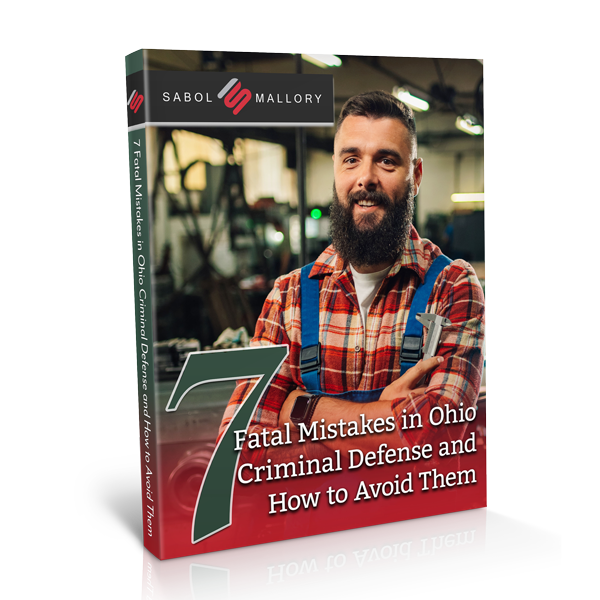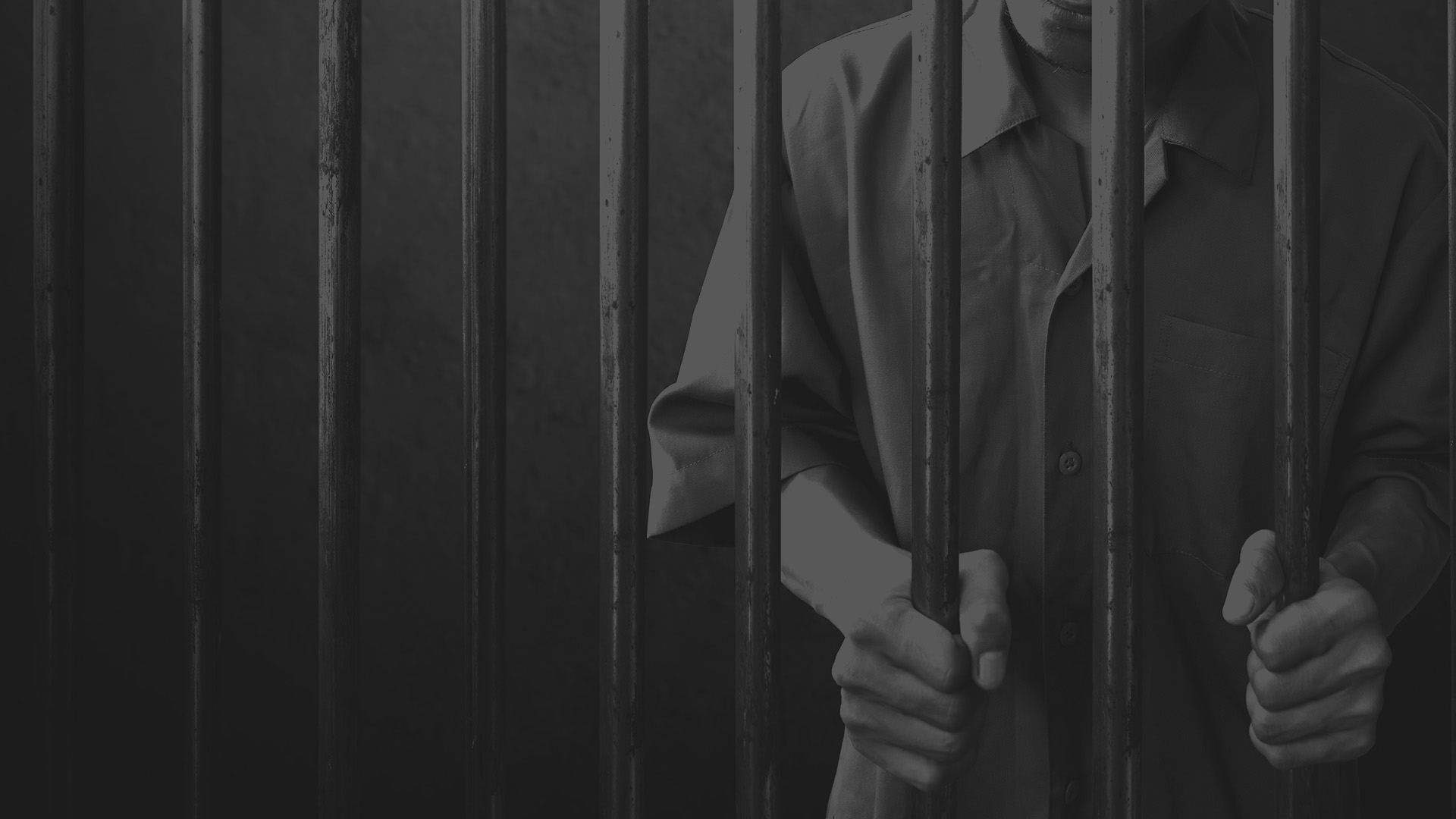Domestic Violence Court Process in Ohio
Do You Need Legal Help?
Do You Need Legal Help?







Learn what our clients have to say about the work of Sabol Mallory. If you have any questions or need legal help for a criminal charge, please reach out to us right away.


Learn what you should and shouldn't be doing to help your OVI case.

Dan is the first attorney in Ohio to be both board certified in criminal trial law by the National Board of Trial Advocacy and be designated as a Lawyer Scientist by the American Chemical Society.

Chase Mallory is a firm founder whom has tried over 40 cases and conducted more than 100 suppression hearings. He is a founding member of the DUI Defense Lawyers Association
Meet the lawyers who make up the legal team at Sabol Mallory LLC. Read their individual bios and get to know more about their education, experience and accolades.
Learn more about our teamIf you’ve been arrested for or charged with domestic violence, it is important to know what the court process is like. Many individuals in a situation like this are dealing with their first-ever arrest. As a result, some of them tend to worry and lose their composure once they are placed behind bars or in the backseat of a cop car.
Of course, these are two places that no one ever wants to be, but if you ever have to encounter this situation, it is crucial for you to know your rights and what to expect next.
The court process for domestic violence is not always easy to understand. Though you need all the information you can get before you are taken through arraignments, arrests, and court dates, the best thing you can do for yourself is to hire a criminal defense lawyer early on in this process. If you’re looking for high-quality legal help, Sabol Mallory LLC is the law firm for you. Led by Dan Sabol and Chase Mallory, our law firm features nationally renowned lawyers with experience helping clients get through the domestic violence court process. For more information, contact us at 614-300-5088 to receive a free consultation from an in-house legal expert.

Upon being arrested by a law enforcement officer, the individual will be handcuffed, searched, and placed in the backseat of a police officer’s car or truck. During this process, it is the arresting officer’s duty to read you your Miranda Rights before attempting to ask questions and/or begin an interrogation.
Once this is done, the police officer will transport the arrested individual to a nearby police station or jail. Here is where they will be “booked” (processed) by providing fingerprints, mugshots, and personal information (name, address, height, weight, etc.). Once this is done and the arrested individual has received their jail uniform, they will be escorted to a holding cell until it is time to see the judge for an arraignment.
The accused individual will be brought before a judge, either in person or via video camera. During this time, the judge will make said individual aware of the charges currently being made against them and their rights. After this takes place, the judge will ask the defendant to make a plea of not guilty, guilty, or nolo contendere (no contest). In many situations, it is in the defendant’s best interest to enter a plea of “not guilty” during their arraignment. Regardless of how dire the case may seem at this point in time, the accused individual will have a chance to change their plea later on.
Once your plea is entered, it is time for the defendant to be paired with a defense attorney. If the individual does not have the funds to afford to hire a handpicked criminal defense attorney, the state will appoint a public defender to represent the defendant.
A public defender can be a useful resource for individuals who don’t have any funds to pay a private law firm, but you may not always be paired with a lawyer who fully understands your case. When you’re independently hiring a lawyer, you are able to interview multiple attorneys to see who’s a good fit for you. In addition to this, you’re also able to inquire about their previous experience, specifically in regard to what type of experience they have working with cases that are similar to yours. This is a privilege you will not be afforded if you have a public defender. While he or she may have legal knowledge, it is not always a guarantee that they have experience fighting against domestic violence charges.
For years, Sabol Mallory has helped individuals of Columbus and Franklin County fight their domestic violence charges. A conviction can be extremely damaging, and this is not what we want for any of our clients. If you are looking for a quality legal team with a proven track record of getting cases reduced or dismissed, we are ready to work with you. Call us at 614-300-5088 to learn more about our law firm.
After your initial arraignment, it is time for the defendant to handle their bail. This part of the process entails the judge determining whether or not you are a danger to society or yourself, and whether or not you are a flight risk, a person deemed likely to leave the country before a trial or bail hearing. Once the judge and the court make the decision, the court sets your bail amount and notifies you of the amount of money you must pay if you want to live freely in society as you await the next court date for your pending charges.
Bail can be confusing for some, but in most cases, it’s actually not that complicated. When the judge sets bail at an amount such as $250,000, most people panic and believe they can never get out because they don’t have a quarter-million dollars in their back pocket. Seeing this number can be very jarring, but keep in mind that you only have to pay a tenth of it to be released from prison. So, if your bail is $250,000, you can be released if you can come up with $25,000.
Getting in touch with a bail bondsman is another option. Using these services can help you find a bondsman who can cover the price of your bail if you don’t currently have access to your funds. Bondsmen charge fees for their services, but they are typically very quick to respond to requests.
Being released on bond is typically more comfortable than sitting in a prison cell until you wait for your pending charges and trial to begin. You can enjoy the outdoors, sleep in a bed that is familiar to you, reflect on what you’ve been through, and speak to a quality criminal defense team. However, you must keep in mind that if a judge lets you out on bail, there are certain terms and conditions you must follow to avoid further jail time.
In a case regarding domestic violence, one of the first conditions of being released on bond will most likely be a stay-away order. This means that the defendant must not have any contact with the alleged victim of the crime until the trial is complete. Violating this order can add some serious jail time onto whatever sentence you’re already facing for the alleged domestic violence and its accompanying charges, so be aware of this.
Keep in mind that the stay-away order is issued by the judge and not the alleged victim. Sometimes, defendants can be tricked into encounters with the victim because they may call or invite the defendant over. Regardless of how it happened, it is on the defendant to ensure he or he or she does not make any sort of contact with the victim during this time. Telling the judge that the victim consented to meet with you and/or invited you over to their home will not be a viable defense in court.
Another condition of your bail may be to track you using an ankle monitor. Wearing this allows the probation department to easily monitor your whereabouts and detect when you are going somewhere you do not have permission to be. While many individuals hate using the ankle bracelet and try to find ways to get out of it, this can actually be to the defendant’s advantage. An ankle tracking bracelet allows you to have undeniable proof of where you are 24/7, and as long as you obey the judge’s order not to go to specific places, you will be fine. This can be helpful if your case goes to trial. If the prosecution and/or the alleged victim attempt to make up false information regarding your whereabouts, all you have to do is present the data from the ankle bracelet and show the judge exactly where you were. As long as it matches up with your bail conditions of where you can and cannot go, you will have no problem overcoming this false allegation from the prosecutors.

Penalties of Domestic Violence
Can the Alleged Victim Drop the Charges?
Will I Go to Jail for Domestic Violence?
Prior to the beginning of your trial, the court will hold its pre-trial status conference. This event takes place following a request for discovery, which gives you and your criminal defense lawyer an opportunity to examine the evidence that has been filed against you. During this time, you will have the time to discuss said evidence and offer any mitigating circumstances. During the pre-trial status conference, you may be able to have your charges reduced, or even completely dismissed. However, if there are additional questions about any piece of evidence, the judge may schedule a motion hearing and make a ruling on the evidence in question. If there are no questions regarding evidence but the prosecution and defense cannot come to an agreement during pre-trial, it is likely that the case will go to trial.
Franklin County Municipal Court – Here, you can find more information about the Franklin County Municipal Court of Columbus, and its current clerk, Lori M. Tyack.
United States District Court: Southern District of Ohio – This link takes you to the website of the Southern District courts of Ohio. Here, you can find contact information for all the courts in this district, as well as the names of judges, clerks, and more.
The court process for domestic violence cases can be extremely confusing, frustrating, and frightening. Whether this is your first arrest or your 15th, you may not have enough legal knowledge to know what’s coming next and how to handle it in the best way possible. If this sounds like you, don’t feel bad; the majority of citizens don’t know how to handle this process alone, which is why we’re here to help.
For years, Dan Sabol and Chase Mallory have helped the citizens of Columbus, Ohio overcome their domestic violence charges. When you’re fighting against prosecutors who want nothing more than to see you behind bars, you need a legal team that’s going to fight just as hard as the prosecution. If this is what you’re looking for, don’t hesitate to call our law firm today at 614-300-5088 for a free consultation. You can also contact us here to give us your name, contact info, and a few sentences to give us an idea of your charges and where you are at in this process. After doing that, we’ll make sure one of our legal specialists gets in touch with you as soon as possible.
![]()
Sabol Mallory did an amazing job. I was very pleased with the outcome. They returned my calls and always went over everything with me. I would HIGHLY recommend them.